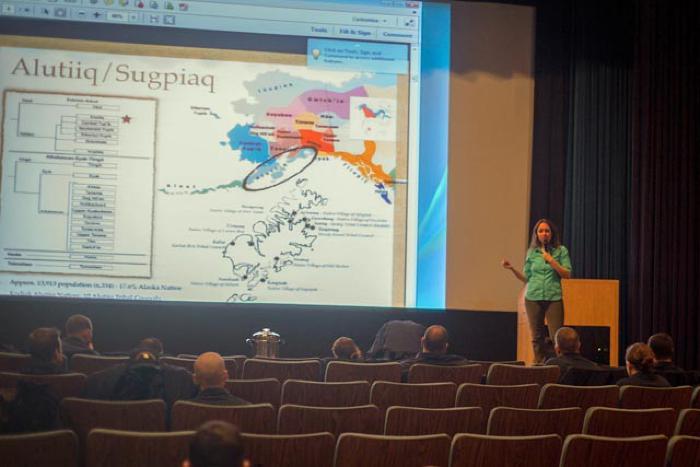Discipline, Lecture — Ilangcarluku

Historic sources agree that there was little crime in Alutiiq villages before the 1950s. Detailed rules managed both the ownership and inheritance of personal property and the use of prime fishing and hunting locations. Similarly, customs governing the distribution of food ensured that anyone who needed meat or fish could share in the catch or take food from another’s stores. A needy person was not even required to pay for or replace the food they borrowed. Under this system, people rarely stole or trespassed.
Despite a social system that provided for community needs, interactions between villagers were occasionally antagonistic. Russian traders report that murder and wife stealing occurred and that Alutiiq people avenged such insults by killing the offender. Less serious crimes like fighting or carousing carried less serious punishments. The Alutiiq word for discipline, llangcarluku, literally means to “bring him to his senses,” and the term can be used to describe a stern talking to or lecture. This word also refers to the point in childhood when one gains awareness—when children accumulate enough knowledge to become capable of thoughtful, intentional action.
Before the establishment of Alaska’s statewide judicial system in 1959, Alutiiq communities dealt with misbehavior internally. The village chief and his council acted as both the local police and court system. They watched the community carefully, rounding up those who misbehaved. First, the council met privately to discuss the situation and design a punishment. Then they convened a community meeting to announce their decision. A first-time offender might be required to make a public apology, a tactic designed to embarrass the person into better behavior. People who made repeated or more serious mistakes might be made to kneel on rock salt at church, do chores for the elderly, or labor in the community. They could even be banished. This system encouraged people to respect their Elders because the Elders not only kept order in the village but determined disciplinary actions.
